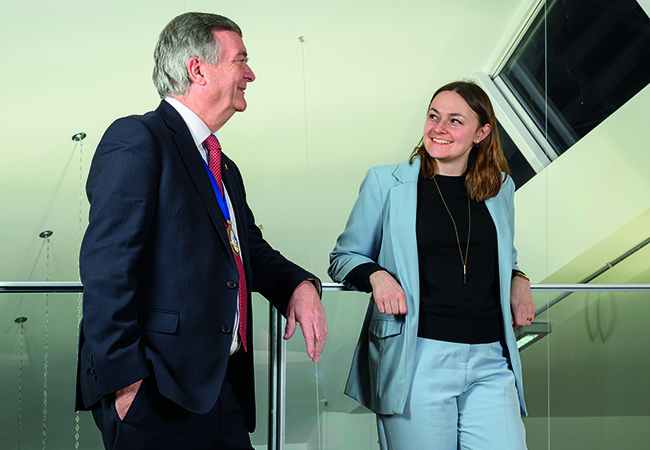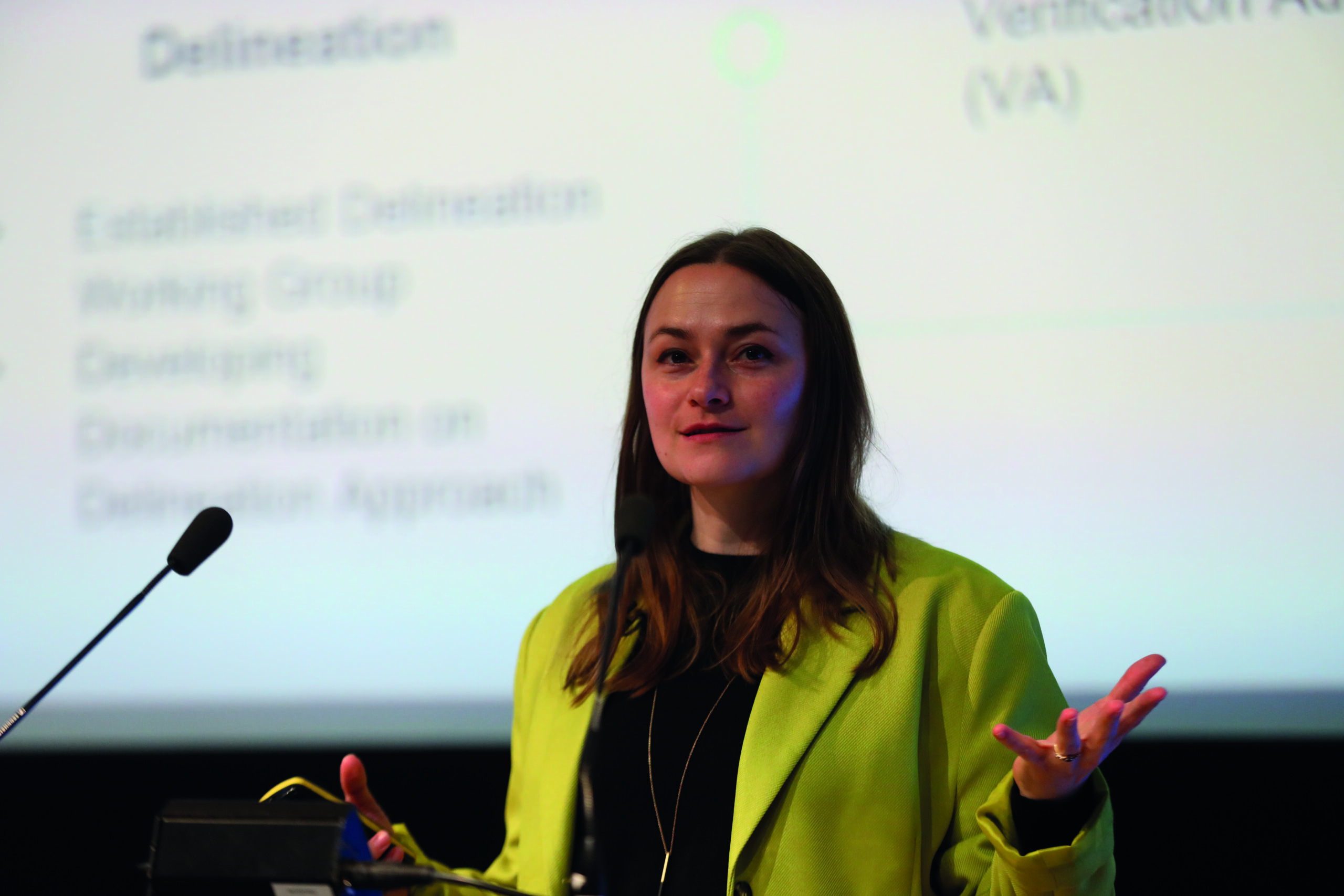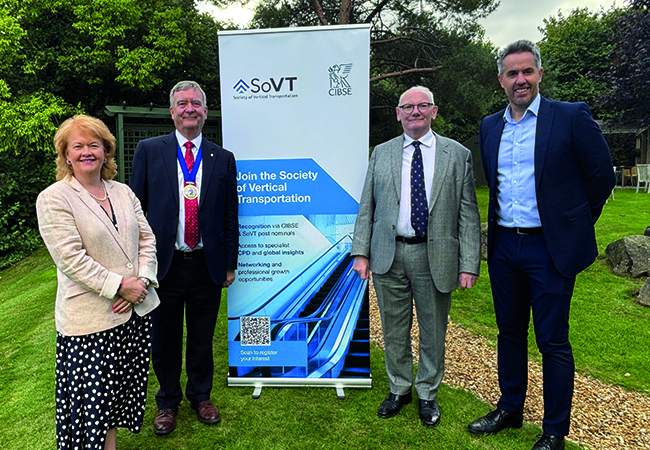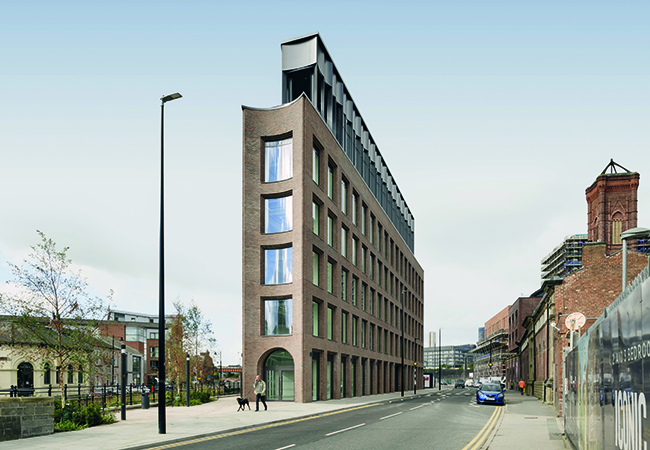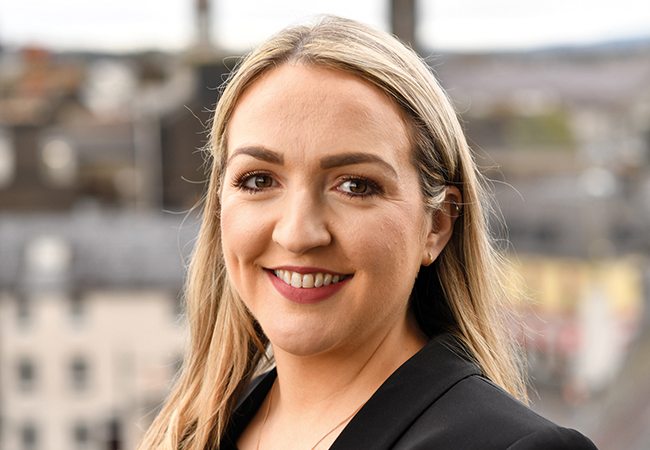
Laura McMahon
CIBSE Ireland plays a key role in advancing sustainable engineering and building performance across the country. Laura McMahon, chair of CIBSE Ireland and director of sustainability consulting at Lawler Sustainability, shares her insights on the sector’s evolving priorities and how she thinks CIBSE can contribute to Ireland’s decarbonisation strategy.
What led you to your current role with CIBSE Ireland?
I have been working in the building services and sustainability engineering sector for more than a decade. I graduated with a degree in building services engineering and, over the years, I’ve specialised in sustainability consulting. I currently work as a sustainability engineer with Lawler Sustainability, where I focus on delivering low carbon, high-performance building solutions.
I’m proud to now serve as chairperson of CIBSE Ireland. As the third woman to hold this position, I hope to inspire greater diversity and visibility for women in engineering.
What priorities are there for the Ireland region?
Our key priorities centre on circularity, climate action, professional development, and inclusivity. We’re working to support members through the energy transition, helping them understand and implement sustainable design, decarbonisation strategies and new regulations. We also want to strengthen the pipeline of chartered engineers in Ireland, improve visibility of CIBSE’s work, and ensure equality, diversity and inclusion are at the heart of everything we do.
What are the biggest challenges facing the sector?
One of the biggest challenges for us is meeting ambitious decarbonisation targets while also addressing skills shortages and an evolving regulatory landscape. Additionally, there is a real need for better collaboration across sectors, clearer pathways to net zero and more support for younger engineers coming into the industry.
And, of course, we can’t ignore the importance of addressing the issues with gender imbalance and representation within engineering.
How will CIBSE aid Ireland’s decarbonisation strategy?
Ireland’s Climate Action Plan outlines targets including a 51% reduction in greenhouse gas emissions by 2030 and a net zero goal of 2050. Buildings play a huge role in this and CIBSE has a critical part to play. Through guidance, CPD events and technical leadership, we’re helping members deliver low carbon buildings that meet and exceed performance expectations.
Where is the key sector growth in Ireland and how is CIBSE responding?
Key growth areas include data centres, retrofitting of existing buildings, and residential development driven by housing demand. CIBSE will respond by offering targeted technical events, training and resources that help engineers stay ahead of the curve. We’re also placing greater focus on sustainability, digitalisation and performance-led design across all sectors.
What lessons could other countries learn from Ireland, and vice versa?
Ireland has made great strides in recognising the urgency of climate action and putting national strategies in place that will help to tackle this. I think our collaborative approach across government, academia and professional bodies is something other countries can learn from.
At the same time, we can learn from countries with more mature retrofit markets, or those that have successfully embedded low carbon thinking in education and regulation. It’s all about knowledge sharing and staying connected globally.
What are the key outcomes you hope to achieve in your term?
I hope to raise the profile of CIBSE Ireland, support more engineers in becoming chartered and improve awareness of sustainable design practices. I also want to strengthen the Young Engineers Network and support the incredible work of the WiBSE community. Most of all, I want to foster a more inclusive, connected engineering community that’s equipped to take on the climate challenge and lead the way forward.
If you are interested in joining CIBSE Ireland, visit www.cibse.org/get-involved/regions/ireland

